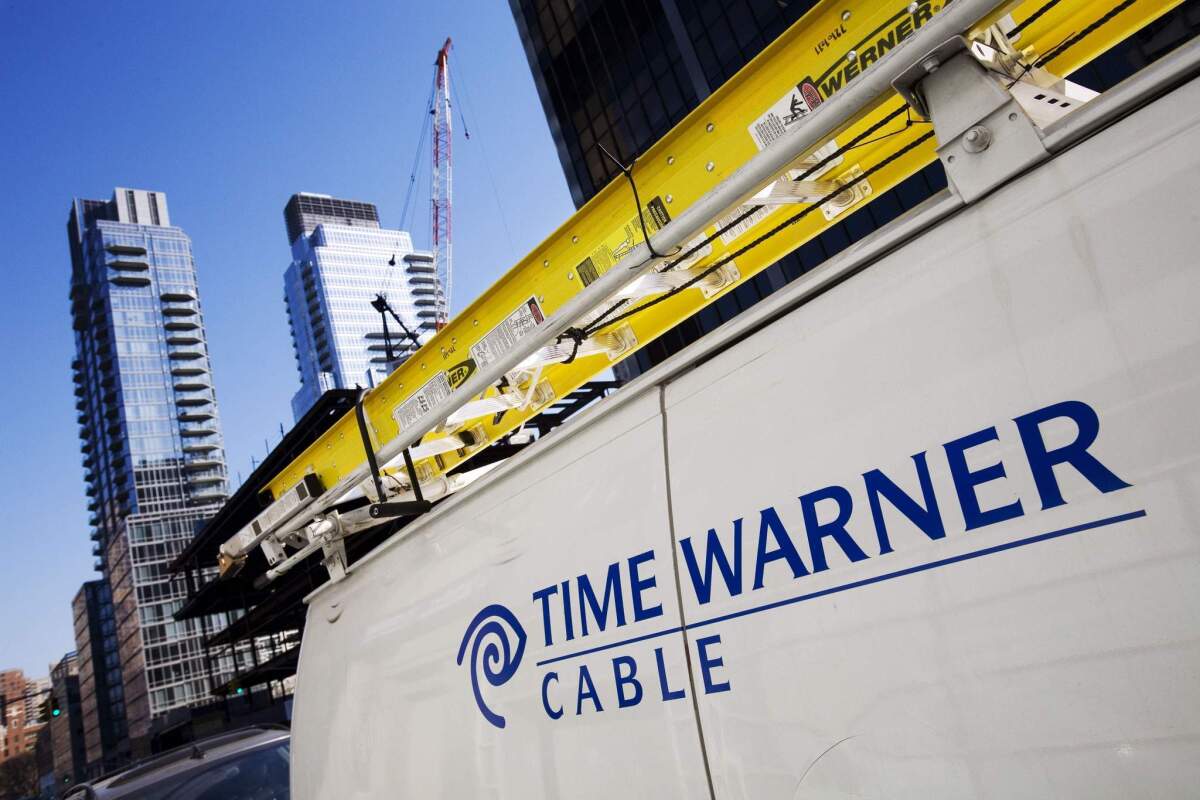A la carte TV pricing would cost industry billions, report says

- Share via
Consumers want to choose the channels they get from their pay-TV providers but such a move would not only undermine the business model for media companies, it could also lead to higher prices for customers, according to a new report by Needham & Co.
Media executives have long resisted calls for so-called a la carte pricing because the financial underpinnings of their companies rest on the enormous revenue generated through cable subscriber fees and advertising sales.
Few have been able to put a price tag on the cost to the industry of a la carte programming, but Needham & Co. media analyst Laura Martin took a stab at it in her study.
“Our calculations conclude that $80 billion to $113 billion of U.S. consumer value would be destroyed by this shrinking channel choice,” Martin wrote in her report, released Wednesday.
ON LOCATION: Where the cameras roll
She determined that the economic costs would be enormous because so many smaller channels would disappear -- at least 124 channels -- wiping out an estimated 1.4 million jobs in media.
Martin figured that at least $45 billion in TV advertising would be at risk.
The Needham report estimates that it costs media companies an average of $280 million annually to run an entertainment cable channel. (The costs to program a sports channel -- with big-ticket sports -- are much higher).
That means a channel requires at least 165,000 viewers over the course of a year to break even.
“By implication, about 56 channels would survive, and 124 channels would disappear, based on 2012 viewing levels,” Martin wrote.
PHOTOS: Cable versus broadcast ratings
Families typically watch only about 16 to 20 channels even though they have access to an average of 180 different channels -- which is why so many consumers are eager to be able to pick and choose which channels they receive rather than being forced to buy packages with dozens of channels they may not want.
Calls for a la carte programming in the U.S. are expected to increase as the Canadian government demands a la carte packages in Canada.
In October, top Canadian officials said that TV companies should begin unbundling TV channel packages offered to consumers by next year.
Martin believes the current system in the U.S. benefits consumers not only because of the level of choice but because the industry provides so many jobs and pays billions of dollars each year in taxes.
What’s more, advertisers shoulder a higher proportion of the cost of programming than do consumers.
PHOTOS: Celebrity production companies
“Americans derive enormous value through diverse channel choices, as evidenced by 4,400 hours of TV viewing per year, virtually all of it funded by public capital markets,” Martin wrote. “Because consumers lose so much value through unbundling, we recommend no changes in the U.S.”
Martin previously made the case that switching to a la carte pricing would probably lead to much higher costs for individual channels. That means that bills for consumers might not necessarily come down, even if they subscribed to fewer channels.
“I may feel that Bravo, A&E, History Channel and Food Network justify the $70 a month fee, while my husband attributes more value to the sports channels,” Martin wrote in July. “In each case, the price/value relationship is intact, but predicated on different channels for each person in the household.”
In other words, if Bravo -- which is currently in about 100 million homes -- was suddenly available only in half as many homes, it would have to double what it charges distributors to cover its programming costs. If Bravo didn’t double or triple its fees, it would have to greatly reduce what it spends on original and acquired shows.
Martin, in her latest report, also took a poke at Commonwealth countries.
“We have no opinion on what Canada should do,” Martin wrote. “But in the U.S., we believe that our founding fathers had it right: decisions made by monarchs aren’t always in America’s best interest.”
ALSO:
Mystery surrounds hiatus of top-rated LA radio morning show
‘House of Cards’: Ruthless drive for power resumes on Valentine’s Day
Fox sells out Super Bowl ad inventory; Hollywood presence diminished
Twitter: @MegJamesLAT
More to Read
Sign up for The Envelope
Get exclusive awards season news, in-depth interviews and columnist Glenn Whipp’s must-read analysis straight to your inbox.
You may occasionally receive promotional content from the Los Angeles Times.







